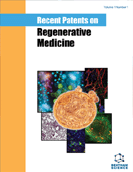Abstract
Recent observations that human mesenchymal stromal cells (MSCs) are non-immunogenic and possess the capacity to modulate the responses of immune cells has caused a fundamental paradigm shift in exploiting the therapeutic potential of MSCs. While MSCs are still being considered for regenerative purposes, particularly for musculoskeletal diseases, their role in treating inflammatory conditions, wound healing and immune diseases is receiving more and more attention. Studies in animal models using human MSCs have been encouraging. However, clinical results using MSCs for treatment of autoimmune diseases including Crohns Disease, Systemic Lupus Erythematosus and Multiple Sclerosis have been mixed. Conflicting results have also been obtained in using allogeneic MSCs to treat acute, steroid-refractory graftversus- host disease (GvHD). This review examines the different clinical results and cites mechanistic in vitro and preclinical studies to provide some insight into these results. Recent patents and applications pertaining to the use of MSCs from various sources for treating autoimmune and inflammatory diseases and disorders, and technologies to enhance or suppress this immune modulation are also discussed.
Keywords: Autoimmune diseases, graft-versus-host disease, immune suppression, inflammatory cytokines, mesenchymal stromal cells, T cells, Tregs, TYPE I DIABETES, RHEUMATOID ARTHRITIS
 13
13







